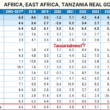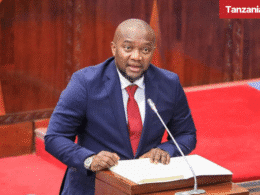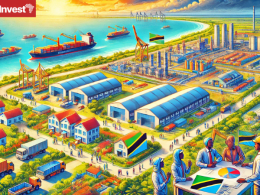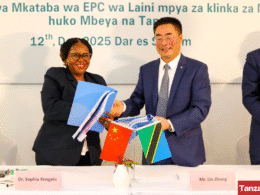Tanzania industry could benefit from a recent two-day visit from the Chinese President Hu Juntao, who has promised to continue supporting the country’s efforts to eliminate poverty.
During the two-day visit, the leaders of the two countries discussed various cooperation pacts, at the end of which the presidents of the respective countries witnesses as the ministers from Tanzania, Zanzibar and China signed the pacts which were worth approximately USD 21.9 million in total.
“It has been a great visit,” said Tanzania’s President Jakaya Kikwete in a speech at the State Banquet that was held in honor of the visiting Chinese leader, “China and Tanzania share a common position on many issues, particularly on global peace and development issues.”
Of the agreements that were reached between the two countries, the USD 17.5 million agricultural agreement is one of the most significantly important for Tanzania, as the agricultural sector is currently the leading contributor to the country’s economy.
Shortly after signing the pact between the two countries, the Tanzania Minister for Finance and Economic Affairs, Mustafa Mkulo told reporters that “the funds will largely be used to finance investments in agriculture, especially providing loans to importers of agricultural machinery,”
According to Emmanuel Ole Naiko, the Executive Director of the Tanzania Investment Centre (TIC), China is one of the top 10 investors in the country.
Recent reports have indicated that the trade relationship between the two countries has been improving greatly, reaching a total worth of USD 794 in 2007, which was already an increase of 48.2 percent from the previous year.
In a recent article by the Daily News, Mr. Ole Naiko was quoted as saying that he was enthusiastic about receiving increased investment from the Chinese in the form of technology, expertise and finance transfers in agriculture, tourism and infrastructure.
“Agriculture and agro-industry are important to food security,” he said in the article, “We need to produce more grain crops and cash crops such as tea, cotton and coffee […] This kind of industry will put added-value to our export-oriented cash crops [and] we hope China could further assist us in such areas.”
Mr. Ole Naiko went on to suggest that, in addition to increased investment in agriculture and food, which currently accounts for approximately 55.9 percent of the commodity items that are compiled in order to calculate the total inflation rate of the country, the tourism sector within the country will also require increased support from the Chinese government as the industry has experienced significant growth over the past three years.
“Tanzania has lots of natural beauties needed to be diversified so as to draw more tourists,” said Mr. Ole Naiko, “We need more star-rated hotels in sightseeing areas and we plan to promote tourism in big cities.”
In addition, the Tanzania mining industry also expects and would welcome increased investment from the Chinese, particularly with regard to petroleum and gas exploitation.
“Despite changes in the international arena, China-Tanzania ties have developed in a sound and smooth way since the two countries forged diplomatic ties in 1964,” Chinese President Hu told President Kikwete, “It can be viewed as an exemplary relationship of sincerity, solidarity and cooperation between China and an African country and between two developing countries.”










